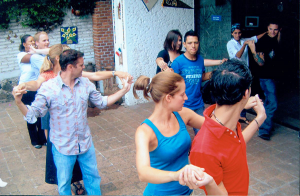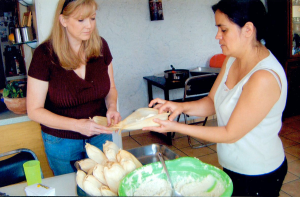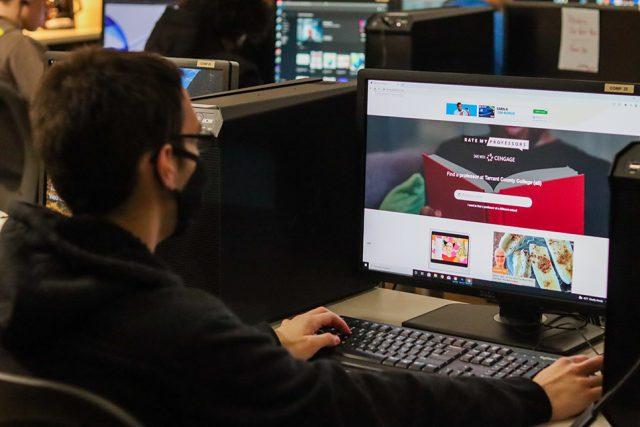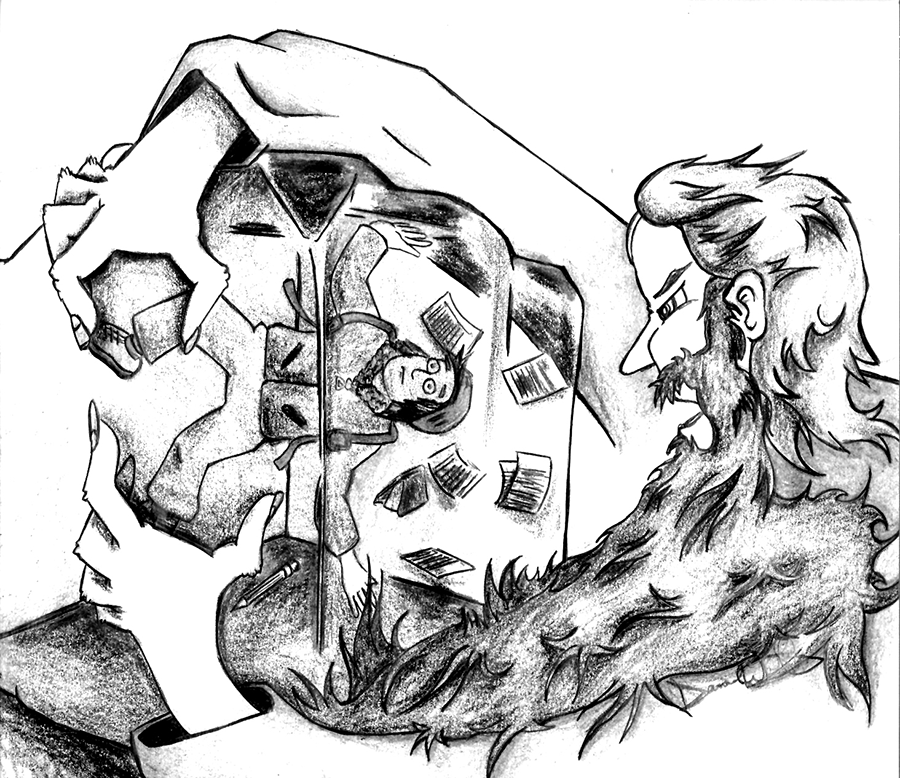By Jayleen Watson/reporter

Photos courtesy James Palmer
Students wanting to study Spanish abroad now have the opportunity to earn more credit.
Beginning in Summer II, the NE world languages department will offer Spanish I and U.S. History in Cuernavaca, Mexico. History and philosophy chair Peter Hacker and Spanish instructor James Palmer will head the inaugural trip.
“This is the first time HIST 1301 and SPAN 1411 have been offered in our study abroad program,” Palmer said.
“This is also a first in offering the immersion method for first-year Spanish students. You also get seven credit hours all together, which should be appealing to most people.”
Palmer said the Spanish in Mexico program, now in its 22ndconsecutive summer at the college, is adding the history component to address the college’s global initiatives.
“There’s no better subject to study abroad than history,” Hacker said. “Culture, civilization, language — it all ties together.”
The history class, which is taught in English, will cover various topics including pre-Columbian civilizations, the Mexican-American war and both the Texas and Mexican revolutions.

Photos courtesy James Palmer
Hacker said the excursions offered on the trip all tie into the topics covered during the five-week session.
“They only add to the overall experience,” he said.
Palmer, who has led the trip to Cuernavaca for 19 years, said anyone can join and benefit from it.
“Every year, we get students from other universities, continuing education students and people in the community that sign up just for the experience,” Palmer said.
“Even Spanish teachers come with us. Cuernavaca is right in the cradle of Spanish history. It really is incredible.”
Hacker said their recruiting process at local high schools encourages future college students to take advantage of a great combination of required courses.
“They are gaining experience and credit,” he said. “You can’t beat that.”
TCC’s study abroad program, with this summer’s trip led by two Chancellor’s Award-winning teachers, will also addresses college retention – a topic recently making national news.
“The program has nearly a 100 percent retention rate,” Hacker said. “Students that go to Mexico stay and complete coursework at TCC.”
Palmer believes there is a mutual gain.
“The program also contributes to continuing the coursework for language. Both the student and the college benefit from that,” he said.
The faculty-led trip, which is hosted by Instituto Mexicano de Español y Cultura, also gives students the experience of learning Spanish with native Spanish-speaking instructors at the host school.
Hacker said students worried about the cost of the trip shouldn’t be.
The cost for the Spanish I and U.S. History in Mexico trip is $2,782. The total includes round-trip airfare from DFW to Cuernavaca, round-trip bus travel in the city, IMEC tuition, room and board, meals, insurance and excursions.
The new session begins July 11, ending with a final exam on August 18 at TCC. Registration begins April 15.
“It may look expensive at first,” he said, “but it really is a good bargain for five weeks. Everything is included.”
Palmer agreed that the trip is “very cost-effective.”
For those interested, a Spanish-only trip is still offered.
“This is our traditional Spanish immersion,” Palmer said. “You can choose from SPAN 1412, SPAN 2311, SPAN 2312 and SPAN 2106. You still have the opportunity to earn up to seven credits.”
Summer I begins May 31 with a final exam on NE Campus on July 7.
Registration for the traditional session is currently being accepted.
Commitment forms, along with a $695 initial payment, must be received by Hacker or Palmer prior to a spot being secured. The initial payment includes a $100 deposit.
Students are required to travel together to Cuernavaca. Once there, a director is there every day to handle any situations that may arise.
Previous Spanish in Mexico trips have had returning students and included some who have gone back to visit host families in Cuernavaca.
Hacker believes this new session will see a similar result.
“It’s really about the experience,” Palmer said. “There is no greater experience than to see someone grow in a culture and language of another place. Isn’t that what it’s all about anyway?”























